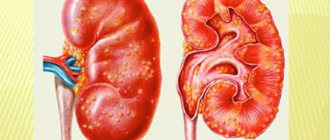Overfatigue is a condition of the body that is caused by too much stress due to frequent stress, anxiety, constant work at the computer, long-term thoughts, etc.
This condition is very dangerous for the human body and can lead to undesirable consequences.
- Causes
- Signs and symptoms
- Types of overwork
- Possible complications
- Prevention
- Treatment
Causes
The basis for the occurrence of this condition is the discrepancy between the duration of hard work and rest time. Causes of overwork include:
- lack of sleep;
- stress, depression;
- excessive brain activity;
- diseases that make breathing difficult, for example bronchial asthma;
- a side effect of taking some cold and flu medications;
- poor nutrition;
- dissatisfaction with relationships, salary, etc.;
- negative living conditions.
Important! An adult should not be at a computer for more than twelve hours a day. This can lead to fatigue, and consequently to overwork.
Signs and symptoms
One of the signs of overwork is constant drowsiness - this is the main symptom. There are also other signs to look out for:
- fatigue and weakness do not go away even after a long sleep;
- frequent headaches;
- inability to sleep despite being tired;
- emotional disorders;
- change in facial color or swelling;
- high blood pressure;
- nervousness and irritability;
- scattered attention, inability to concentrate;
- memory impairment;
- loss of appetite, nausea, vomiting;
- redness of the eyeball.
Many signs can be symptoms of other diseases. There are no unique features on the list that indicate a diagnosis. But each of these symptoms is an objective sign of overwork if it manifests itself in combination with others against the background of severe physical and mental stress.
Did you know? The female sex is more often exposed to overwork due to a fragile nervous system.
How does overwork manifest itself? Symptoms and self-help
It happens that a seemingly dark streak in life drags on. The most insignificant events grow to the scale of catastrophes, everything is so annoying that you want to run away to the ends of the world and not see anyone. A person is not able to concentrate on his usual work, not to mention the fact that everything new is frightening and causes a sharply negative reaction. Perhaps it's overwork. Its symptoms are often disguised as somatic illnesses or mental disorders. Despite the fact that this condition is reversible, it cannot be neglected. After all, this is a signal that the body has stopped coping with the load. This means that it will not be possible to move further at the same pace.
Overwork: symptoms
They manifest themselves differently in different people. But the most common are irritability, nervousness, headaches, frequent bad mood, and decreased body resistance to infections. For example, if a person suffers from influenza or acute respiratory viral infection several times during the season, if a low-grade fever is constantly maintained (about 37 - 37.5), it is possible that the main reason is overwork. Symptoms may also resemble gastrointestinal diseases (stool disorders, abdominal discomfort, heaviness, indigestion, nausea). Many body functions undergo more or less serious changes. For example, sleep patterns are disrupted. During the day, a person experiences irresistible drowsiness and is forced to stimulate himself with coffee and energy drinks. And at night he cannot sleep, he often wakes up. This can mean both depression and overwork. Symptoms often resemble hormonal disorders. Weight fluctuations, tearfulness, and increased excitability may occur.
Diagnostics
Very often a person does not know where and to whom to turn with his problems. On a variety of forums, messages appear every now and then: “Doing normal work, I quickly got tired. Why?" or “How to cope with increased fatigue?” If this condition is neglected, then various diseases can actually begin to develop. But another approach is also dangerous: many doctors tend to attribute all problems and complaints to overwork. Symptoms, as we have already said, often resemble somatic, hormonal, and mental disorders. Yes, in fact, they affect all important functions. However, a competent doctor, in order to exclude more serious diseases, must prescribe a comprehensive examination. In recent decades, scientists have been leaning toward the viral theory of CFS (chronic fatigue syndrome). In addition, signs reminiscent of overwork can cause liver diseases (hepatitis C and B) and dysfunction of the thyroid gland. Hidden depression also often manifests itself as severe fatigue. Therefore, the treatment and measures in each case must still be determined by the doctor.
What you can do yourself
Reasonable doses of multivitamins won't hurt. In addition, by establishing a daily routine and proper nutrition, you can improve your well-being. Your diet should contain a lot of foods containing magnesium, calcium and vitamin B. These could be legumes, nuts, meat, bananas, dried apricots. If possible, it is advisable to change your occupation at least for a while. After all, performance suffers first of all, many errors appear, and the most common actions take much longer. Take advantage of the opportunity to take a sabbatical or sabbatical. Sometimes a simple change of environment can help cope with overwork. Recommended herbal remedies include lemon balm, motherwort, and nettle. Not everyone benefits from stimulants (such as ginseng or Rhodiola), because they sometimes overstimulate the nervous system, which is already on the verge of exhaustion. Overwork, the symptoms of which become noticeable only after several weeks or even months, will require a long recovery. Keep this in mind and don’t expect the impossible from yourself.
Types of overwork
Overwork can be of two types:
- Physical.
- Mental (mental).
Physical fatigue is the result of intense physical exertion, which develops gradually. At first, a person experiences slight fatigue and mild muscle pain. Often they do not pay attention to this and continue to lead a normal lifestyle. Over time, the body becomes exhausted and leads to fatigue.
Did you know? Fatigue differs from overwork in that the second is a pathological process that occurs as a result of prolonged fatigue.
Mental fatigue occurs due to mental and emotional stress.
It looks like normal fatigue. A person tries to rest and get enough sleep, believing that it will pass this way. Doctors say that such events will be few. To recover, a person needs to undergo a course of treatment.
Fatigue
Overwork is preceded by fatigue, the symptoms of which are a signal for a person.
Fatigue is a shift in the psychophysiological state of the body and leads to a temporary decrease in labor efficiency. Fatigue from light loads, decreased performance, mood swings, longer recovery and rest times indicate fatigue. It's time to stop doing the work, reduce the intensity, take a break. Develops gradually. At first, mild fatigue and mild pain in the muscles occur. The symptoms go unnoticed, the person continues physical labor or sports, does not reduce the load, which leads to the height of physical fatigue.
Symptoms of physical fatigue:
- constant feeling of fatigue, after sleep, rest, massage;
- increasing muscle pain: at rest, with tension;
- restless sleep: waking up for no reason, difficulty falling asleep;
- disturbance of the emotional background: apathy, lethargy or irritability;
- discomfort, pain in the area of the heart;
- tachycardia;
- decreased appetite;
- white coating on the tongue;
- trembling of protruding tongue;
- weight loss;
- in women - menstrual irregularities.
Symptoms of overwork appear at work. It is impossible to fulfill one’s professional duties fully and efficiently.
Often interpreted as ordinary fatigue. People take vacations, go to the sea, but their condition does not improve. Leads to the condition:
- continuous work at the computer (more than 8 hours a day);
- periods of increased mental stress (reporting period, etc.);
- a large amount of information received in a short time;
- being under stress;
- dissatisfaction with work, salary, etc.
| Primary | Secondary |
| Periodic headaches for no reason | Memory loss, absent-mindedness |
| Feeling tired even after sleep | Soreness of the axillary and cervical lymph nodes |
| Pale, gray complexion | Increased body temperature |
| Blue spots under the eyes | Depression, mood changes |
| Fluctuations in blood pressure | Stomach ache |
| Redness of the sclera of the eyes (the main symptom of computer fatigue) | Loss of appetite, weight loss |
| Problems falling asleep | Insomnia, night sweats |
Worsening of the condition is accompanied by vomiting, nausea, severe irritability, nervousness, loss of concentration, and memory impairment. There are frequent acute respiratory infections and acute respiratory viral infections.
There are 3 stages of development of mental fatigue:
- Easy. Problems falling asleep even when very tired, feeling tired after a night's sleep, decreased physical and mental performance.
- Average. Added: heaviness in the heart area, anxiety, fatigue. Hand trembling with little physical activity. Heavy sleep with frequent awakenings, nightmares. Disorders in the digestive system: loss of appetite, pale facial skin, reddened sclera of the eyes. In men – decreased libido and potency. In women - menstrual irregularities.
- Heavy. Neurasthenia manifests itself - increased excitability, irritation, lack of sleep at night, drowsiness during the day, disruption of the functioning of all organs and systems.
Stages 2 and 3 of fatigue require treatment.
Stress, emotional overload, negative emotions do not leave their mark on the body and lead to nervous fatigue. The first symptoms of nervous fatigue:
- persistent fatigue;
- insomnia at night and drowsiness during the day;
- pessimism;
- anxiety;
- increased sensitivity to external stimuli;
- tachycardia, blood pressure surges;
- general symptoms of fatigue: fever, pain in the legs, arms, back, discomfort in the stomach and intestines;
- exacerbation of chronic diseases.
The person becomes impatient, irritable, anxious, and unsure of himself. Self-esteem falls, problems arise in the sexual sphere, memory deteriorates, and the mood is consistently depressed.
During nervous fatigue there are three stages:
- hypersthenic: fussiness, irritability, understanding that there is a problem, but the inability to cope with it. Poor control over emotions, provoking quarrels and conflicts. Headache, muscle pain, insomnia, decreased ability to work;
- irritating weakness: hot temper, pessimism, anxiety. Heart pain, shortness of breath, allergic reactions;
- hyposthenic: apathy, lack of interest in life, depressed mood, indifference.
Treatment is similar to mental fatigue. It is important to rule out the factors that led to the condition.
This dangerous condition leads to health problems. Overwork is most often preceded by severe fatigue. Causes:
- Infants: violation of the daily routine, problems with breastfeeding;
- preschoolers: stressful situations, dysfunctional family environment, excessive attempts by parents to develop their children in every possible way, to raise geniuses;
- younger schoolchildren: physical and mental stress, overload with lessons, short sleep at night;
- older schoolchildren: hormonal changes, high intellectual load, conflicts with peers.
The first symptoms of overwork in children are not pronounced, which complicates the diagnosis. Please pay attention to:
- moodiness/tearfulness for no apparent reason;
- restless sleep, screams in sleep, erratic swinging of legs and arms;
- impaired concentration during activities or games.
| Minor | Expressed | Sharp | |
| Interest in the material | Lively interest, children ask questions | Weak. Children do not ask clarifying questions | Apathy, complete lack of interest |
| Attention | Rarely distracted | Scattered. Children are often distracted | Weak. No reaction to new material |
| Pose | Fickle. Characterized by stretching of the legs and straightening of the torso | Children often change positions, turn their head to the sides, prop it up with their hands | Children constantly want to stretch out and lean back in their chair. |
| Movements | Accurate | Slow, unsure | Fussy, impaired fine motor skills, handwriting |
In addition to the above, common signs of fatigue are characteristic: insomnia, daytime sleepiness, poor appetite, irritability, moodiness, unreasonable fears, weakness and headaches. Children lose interest in learning and fall behind. Psycho-emotional disorders are often associated: unpleasant facial expressions, antics, mimicking others, aggression. Obvious symptoms of overwork in teenagers: they begin to snap, become rude, and ignore the comments and requests of adults.
If you do not begin to correct this condition in a timely manner, everything can turn into neurosis, vegetative-vascular dystonia, and insomnia. An integrated approach is needed; it is better to contact a pediatrician and a psychologist, who will prescribe sessions of auto-training, psychotherapy, massage, and vitamin supplements. In parallel follows:
- adjust your diet. No fast food, nutritious and regular meals;
- increase feasible physical activity: sports, swimming, physical therapy;
- spend more time outdoors: active walks for 1.5-2 hours a day.
Overwork is not a disease, but the approach is the same: it is easier to prevent it than to correct it later. By following simple recommendations, you can remain active throughout the year, and a vacation will be enough to recuperate.
- Get plenty of rest on your weekends.
- Don’t overload your brain with TV, heavy music, or other people’s problems.
- Change your activities: if your main work is physical, don’t neglect books at home, and vice versa.
- Do feasible sports: walking, jogging, morning exercises, swimming pool, cycling.
- Visit relaxing treatments: bathhouse, sauna, swimming pool, massage.
- Avoid drinking alcohol at the first sign of fatigue. Instead of relaxing, you yourself will introduce toxic substances into the body and aggravate the situation.
Think carefully about your vacation. I want to do everything at once. But if you have 3-4 days off, it’s better to go out of town with your family, relax in nature, rather than go abroad for new experiences.
Parents must provide:
- supply of fresh air to housing: regular ventilation of premises;
- daily walks: regardless of the weather, even if it’s raining outside, you can breathe fresh air under a canopy;
- good nutrition: more vegetables, fruits, herbs, natural meat and dairy products;
- quiet time before bed: reading a book, putting together a puzzle, coloring;
- compliance with the daily routine: the child’s nightly sleep should be at least 9-10 hours.
Knowing the symptoms of overwork, modern approaches to treatment and prevention, it is easy to prevent the transition of a borderline state into a disease. If left untreated, the acute condition will develop into chronic fatigue - nervous or physical exhaustion, the symptoms of which are more serious. Social complications, health problems, and communication problems arise. The quality of life suffers greatly, and long-term serious illnesses are possible.
Take overwork seriously - it is not just fatigue, but a protracted pathological condition that can lead to illness. Follow a daily routine, alternate periods of activity and rest, avoid overwork and overload.
Possible complications
Overwork is not a disease. But this syndrome cannot be ignored. The body's defenses, which prevent the development of diseases, are weakened. If you do not take reasonable measures to eliminate this condition, complications are possible:
- increased irritability, aggressiveness, neuroses, hysteria;
- digestive disorders;
- weakening of the immune system;
- exacerbation of chronic diseases;
Prevention
There are preventive measures that require:
- give up strong medications, such as sleeping pills;
- use relaxation techniques such as meditation;
- reduce the consumption of alcohol and tobacco products, if possible eliminate them altogether;
- visit a massage room;
- find an interesting hobby;
- receive positive emotions from communicating with people you like;
- analyze your fears, determine the necessary actions and perform them one by one.
These preventive measures are general in order to eliminate the cause that led to overwork.
Periods of serious stress must be planned in advance and prepared for through training. Mental stress must be relieved through physical activity followed by relaxation. Important! After a serious illness or surgery, it is necessary to exclude physical and mental work until the body’s reserves are completely restored.
How to avoid overtiredness in children?
Many parents believe that the benefits of many additional activities and training are extremely great and worth all the efforts of their child. However, among the causes of mental disorders in children, lack of time for their own desires and needs ranks high. Other disorders that result from excessive loads include visual impairment and diseases of the gastrointestinal tract.
Important: in order to prevent overwork in their children, parents, firstly, should reconsider their priorities and decide what is more important to them is education and good grades or the health of their child.
Secondly, they need to take a close look at their child, because what one can do is an exorbitant burden for the other. The approach to completing tasks is also individual. Some people find it easier to start with the hardest activity, while others prefer to do the easier ones first. Even twins are different from each other, let alone children who are born from different parents, under different circumstances and grow up in different conditions. Therefore, in classes, as in food, you need to know when to stop.
Determining this very measure and finding out how attractive this or that business is for a child is actually not as difficult as it might seem at first glance. If a student, upon returning home, shares his impressions with delight in his eyes and talks about his achievements, then this means that he enjoys additional classes. The same applies to the little ones.
Good to know: all early development methods or other activities are good as long as they bring the child joy from learning something new.
When he begins to yawn and has difficulty sitting still, this should serve as a signal to an adult that it is time to change his occupation. So, on average, the duration of a lesson or other type of activity with a preschooler is no more than half an hour, although in early preschool age (3-4 years) children can concentrate on performing one task for no longer than 15 minutes.
True, if a child is extremely passionate about something, then he can study for much longer. But hobbies can be of different kinds, so how much time the baby will spend in one activity or another depends on the prudence of the parents. For example, from sitting for a long time at the computer (static stress), even if the baby plays educational games, fatigue accumulates faster than from active games (dynamic work). Therefore, even if the baby screams that he is not tired at all, because he does not feel it, it is reasonable to limit his time spent in front of the monitor screen. You can develop a child’s interest in those activities to which he is indifferent by creating some kind of bonus system, and not necessarily financial.
Good to know: it should be noted that physical fatigue is practically not typical for children. They instinctively stop active play activities. Much more often, children suffer from mental (nervous) fatigue.
That’s why it’s so important to alternate physical and mental work. This will provide some restoration of strength and allow you to withstand the load, but, of course, will not replace proper rest. In this case, you need to start from the fact that the duration of a student’s sleep should be at least 10-11 hours . In order to prevent overwork, it is also important to create a favorable atmosphere in the family, provide the child with the necessary vitamins and beneficial microelements, and maintain comfortable conditions in the room where the baby is resting (temperature +20-22 degrees, humidity 60-70%).












